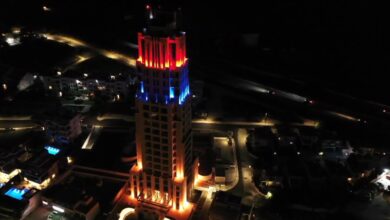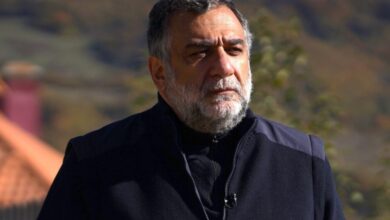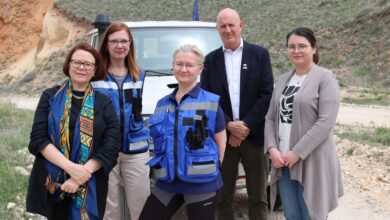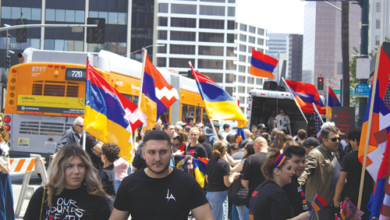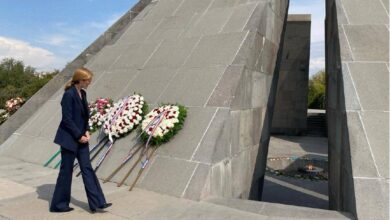LA-bound Armenians held up in Iran as travel ban effects linger

 KPCC – When President Donald Trump signed his executive order halting refugee admissions last month citing national security, he made it a point to say that religious minorities, especially Christians, would be given priority.
KPCC – When President Donald Trump signed his executive order halting refugee admissions last month citing national security, he made it a point to say that religious minorities, especially Christians, would be given priority.
But some Christian refugees have been unable to enter the U.S. in the aftermath of the presidential order, even though the travel ban has been suspended for now by federal courts.
One family bound for Los Angeles is among the refugees held up in Iran.
George Haratoonian, a business owner who lives in Glendale and arrived himself as a refugee nearly three decades ago, was expecting his brother’s family to fly into Los Angeles on Feb. 4. They were planning to live with him until they got settled.
But just as the president’s order took effect in late January, the family received disappointing news: their visas to Austria, the first leg of their journey, had been canceled. Haratoonian was with them in Tehran when they got the news.
“We had hoped that this thing was a rumor,” he said. It wasn’t.
The Haratoonians are Armenian Christians, a religious minority in Iran. The family was traveling to the U.S. through what is known as the Lautenberg program, which benefits religious minorities. The program was originally enacted in 1990 to assist refugees from the former Soviet Union. Today, the program mostly benefits Christian, Jewish, Baha’i and other religious minority refugees from Iran.
Under the program, refugees transit from Iran to Austria, then on to the United States. Because the U.S. has no embassy in Iran, they must complete their paperwork in Austria before they continue on to the U.S. In order to get to Austria, they receive what’s known as a “D visa” from the Austrian government.
An Austrian government official confirmed in an email to KPCC that the visas of Iranian refugees in the program were canceled “following a procedural modification on the part of the United States.” The action occurred just ahead of the ban taking place. Refugee agencies believe that the Austrian government anticipated a policy change and didn’t want refugees stuck in transit.
Haratoonian said his family has lost much more than visas. They had quit their jobs, left school, moved out of their home and sold all their belongings.
“Now, they’ve lost everything. And now they are living like homeless. It’s ridiculous,” he said.
The family is staying in a vacant house in Tehran, owned by a friend. Haratoonian’s eldest niece spoke with KPCC from there.
“The house is totally empty, and all we have is the stuff we already packed for going to Austria,” said Haratoonian’s niece, a 21-year-old college student who withdrew from the university she attended as the family prepared to leave the country.
Administration officials are now weighing their options, which could include a revision of the travel ban to address legal issues and a request for the full Ninth Circuit to review the stay of the ban.
As his family waits for news, George Haratoonian calls his brother nearly every day. He dials them in the mornings, when it’s nighttime in Iran, calling from his party-rental business in Atwater.
“I just give them hope, I can’t do anything else,” said Haratoonian. “I can’t send a visa for them. I can’t send an airplane for them. What can I do? It’s devastating.”


